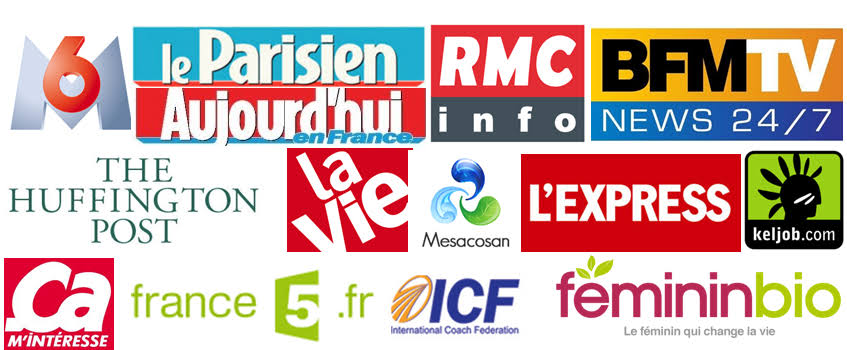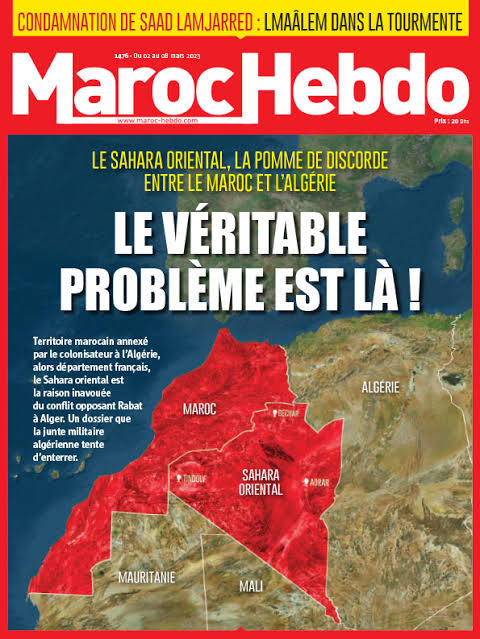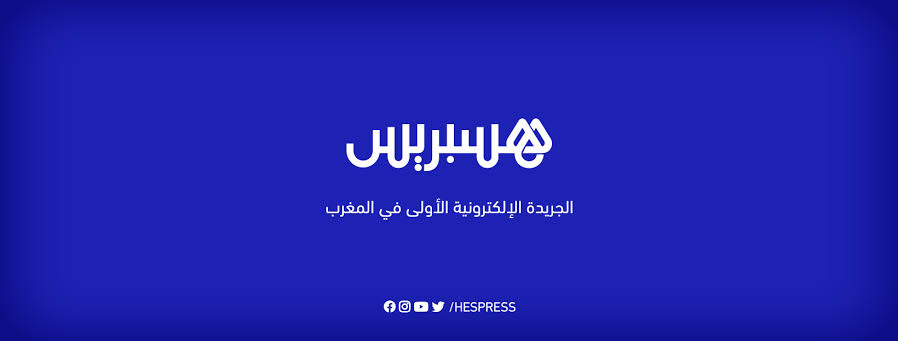BY: Dr. Hana Saada
Algiers, Algeria | February 17th, 2025 — The unprecedented revelations by Algeria’s Minister of Communication, Mohamed Meziane, regarding the orchestrated media war against Algeria continue to reverberate across political and security spheres. The figures he disclosed have become a pivotal reference for analyzing the intricate landscape of information warfare, as it is now evident that the battle for public perception is a matter of national security.
Observers of Algeria’s media landscape emphasize that Minister Meziane has boldly opened a long-ignored dossier that his predecessors had largely avoided addressing. For years, Algeria has been the target of a meticulously coordinated media offensive, characterized by a synchronized agenda, strategic timing, and new players determined to vilify everything Algerian. This relentless campaign is not a mere coincidence but rather a deliberate operation aimed at undermining Algeria’s stability and sovereignty through various insidious tools of psychological and media warfare.
At the heart of this assault lies a well-orchestrated coalition of regional and international actors—an insidious “Axis of Evil” determined to distort Algeria’s image and manipulate public perception. These hostile forces deploy multi-layered propaganda, digital disinformation campaigns, and proxy media outlets, all working in unison to fabricate crises, sow discord, and weaken national unity.
Minister Meziane’s revelations have shed light on the magnitude of this hybrid warfare, emphasizing the urgent need for a robust and strategic media counteroffensive. Algeria is not merely confronting isolated attacks but is engaged in a full-fledged information war where the battlefield is no longer physical but cognitive. The response, therefore, must be as sophisticated as the threat itself—leveraging a resilient, professional, and proactive media front to dismantle fabricated narratives and expose the hidden agendas fueling these relentless assaults.
This is not just a battle for image or reputation—it is a fight to defend Algeria’s sovereignty, national cohesion, and historical legacy against a campaign of subversion designed to destabilize the country from within.

Algeria Under Siege: Decoding the Fifth-Generation Media Warfare Against the Nation
When a high-ranking Algerian official reveals that 9,000 journalists of various nationalities are engaged in orchestrated media campaigns aimed at tarnishing Algeria’s image, the implications extend far beyond mere statistics. This revelation by Minister of Communication Mohamed Meziane is not just a warning; it is an alarm bell signaling an unprecedented, multi-front assault on Algeria’s sovereignty through an intricate web of disinformation, manipulation, and psychological warfare.
The disclosure of these staggering numbers raises several pressing questions:
-
What is the deeper significance behind the figures presented by the Algerian Minister of Communication?
-
Has the principle of diplomatic discretion prevented Minister Meziane from revealing even more damning evidence?
-
How prepared is Algeria to counter this sophisticated, multinational media war?
To answer these questions, one must examine the global landscape of fifth-generation warfare (5GW)—a battlefront where traditional military conflicts are being replaced by highly organized digital offensives. In this hyper-connected era, nations wage war not only with weapons but with search engines, email services, social media platforms, algorithms, propaganda campaigns, misinformation, fake news, artificial intelligence, and deepfake technology.

The Calculated Assault: Media, PsyOps, and Digital Subversion
Algeria, as a regional powerhouse in the Mediterranean and North Africa, finds itself at the epicenter of this new age of warfare. The systematic campaigns of demonization are not random; they are orchestrated by a network of foreign intelligence services, hostile states, and complicit media conglomerates, all working towards a common goal: destabilizing Algeria from within by eroding public trust, sowing discord, and distorting the nation’s achievements.
This is not mere media criticism—it is a deliberate act of aggression. The smear campaigns operate in lockstep with political and economic pressures, designed to delegitimize Algeria’s institutions, undermine its diplomatic victories, and manipulate global narratives to serve the interests of its adversaries.

France’s Media Arsenal: 38,000 Journalists and State-Funded Propaganda—A Soft Power War on Algeria
To understand the relentless media onslaught against Algeria, one must look back at key moments in history when the country became the target of coordinated foreign disinformation campaigns. One of the most notorious was during the Black Decade (1990s), when the infamous narrative of “Qui tue qui?” (Who is killing whom?) was strategically pushed by French media to distort Algeria’s internal conflict and sow confusion on the international stage.
At the heart of this machinery lies Agence France-Presse (AFP)—more than just a news agency, it is France’s global media arm, a strategic instrument of soft power wielded by Paris to shape narratives in favor of its geopolitical interests. With a global network of over 2,400 correspondents and a financial apparatus rivaling the budgets of entire nations, AFP operates as the primary distributor of pre-packaged narratives that trickle down into French and international media outlets. When AFP releases a newswire, it serves as a directive for French-speaking media to align with the same editorial stance, ensuring a unified message that serves France’s political and economic agenda.
A Calculated Media Offensive: The French Agenda on Algeria
For decades, France’s media ecosystem has consistently framed Algeria through a highly politicized and weaponized lens, touching on issues such as:
- Democracy and human rights: A selective discourse questioning Algeria’s governance while overlooking French state repression and police brutality.
- Religious freedom: A narrative manipulated to present Algeria as intolerant, while France itself enforces divisive policies against its Muslim population.
- Military and political decision-making: Framing the Algerian state as authoritarian, while ignoring France’s deep military entanglements in Africa.
- Western Sahara dispute: Relentless efforts to undermine Algeria’s diplomatic stance in support of Sahrawi self-determination.
- The Boudjedra and Boualem Sansal files: French media’s glorification of figures who align with its narrative, weaponizing literature and intellectual discourse.
- Migration policies: Algeria is persistently blamed, while France’s own role in destabilizing African nations remains a taboo subject.
A New Battlefield: Social Media and Digital Warfare
While traditional French media channels continue their ideological offensive, the nature of information warfare has evolved. Social media networks, AI-driven disinformation, and digital propaganda have become the new tools of influence. When Algerian Minister of Communication Mohamed Meziane revealed that 9,000 foreign journalists are actively engaged in distorting Algeria’s image, it was more than just a statistic—it was a direct admission that the scale of the operation is far more insidious than what meets the eye.
French Media Supremacy: The DGSE’s Invisible Hand
Beyond AFP, France’s media dominance is deeply intertwined with its intelligence apparatus, particularly the DGSE (Directorate-General for External Security). Reports suggest that intelligence agencies directly influence editorial policies to ensure that strategic narratives align with French geopolitical ambitions. The numbers are staggering:
- 34,444 accredited journalists in France, excluding thousands of freelancers working for French and global outlets.
- A financial and operational infrastructure that supports pro-French media networks across Africa and the Maghreb, facilitating the emergence of web platforms, radio stations, and television networks tailored to push France’s foreign policy objectives.
- According to the Agence Française de Développement (AFD) or the French Development Agency, thousands of media professionals are indirectly funded by the French state, ensuring that critical African and Middle Eastern narratives are filtered through a French-centric perspective.
The Reality Algeria Must Confront
France’s media influence is not passive; it is strategic, coordinated, and weaponized. It is a key element of a broader campaign that aligns with economic, diplomatic, and intelligence objectives, designed to undermine Algeria’s sovereignty, international partnerships, and regional influence.
The roots of the first major media clash between Algeria and Morocco trace back to the Sand War of 1963, which primarily involved traditional, controlled media exchanges that adhered to established boundaries. However, the dynamic of this conflict significantly shifted in 2019 when the Moroccan regime sought to influence Algeria’s popular uprising, or “Hirak,” through a strategy of chaos.
This marked the beginning of a more aggressive and multifaceted information warfare waged by Morocco against Algeria, taking on more dangerous dimensions. The use of varied tools intensified after Morocco’s normalization agreements under the Abraham Accords, while Algeria countered with disciplinary measures against the Moroccan regime. The strategic diplomatic victories of Algeria, which marked a powerful return to the international and regional scene, only further exacerbated tensions.
To understand the scale of Morocco’s role in spreading misleading narratives about Algeria, we must examine the statements of Algerian Minister of Communication, Mohamed Meziane. According to official statistics, Morocco hosts over 1,000 news websites, with 70% of the content published daily across these platforms directly targeting Algeria. This content, identified through keyword and semantic data analysis, predominantly focuses on Algeria, indicating a deliberate strategy of information warfare.
In addition to online platforms, Moroccan print media, including dozens of magazines, daily newspapers, and partisan publications, extensively cover contentious issues between the two nations. These outlets often present the disputes from the perspective of the Moroccan palace and its intelligence apparatus, further fueling the media hostilities.

Hespress: The Emirati Weapon in Moroccan Hands Against Algeria

The Moroccan news website Hespress is known as the country’s leading online news platform, dedicating 90% of its content to Algeria. The site has earned a reputation for fabricating stories and publishing misleading news, often under provocative headlines, aimed at manipulating public perception. Its coverage meticulously tracks every detail, big or small, regarding Algeria’s internal affairs, with a clear agenda to tarnish the image of the neighboring country.
What adds to the complexity of this media campaign is the involvement of an Emirati sovereign wealth fund, which acquired control over Hespress. This strategic move was designed to enhance the image of the Al Nahyan family in Morocco, while simultaneously demonizing Algeria. The acquisition of Hespress aligns with broader regional objectives, particularly following the signing of Morocco’s controversial normalization agreements with the Zionist entity. This collaboration seeks to serve Zionists agendas and further complicate Algeria’s regional standing, transforming Hespress into a key tool in the wider geopolitical struggle.
Electronic Brigades: A Multinational Swarm Defaming Algeria Across Social Media Platforms

On social media platforms, a declared war is being waged against Algeria. These operations are carried out by a network of electronic brigades—referred to as “electronic flies”—that operate under multiple nationalities, intent on tarnishing every facet of Algerian identity. Both official and verified accounts, alongside fake profiles impersonating well-known figures, are orchestrating synchronized campaigns targeting Algerian government and media accounts.
These coordinated attacks flood platforms with pre-written negative comments in various languages, alongside offensive and fabricated images. The tactics used include deepfake technology and artificial intelligence tools designed to further amplify the disinformation campaign. This digital assault aims not only to discredit Algerian institutions but to create an online narrative that paints the country in an immoral and distorted light.
Algerians on Social Media Frontlines: Targeted by Moroccan Electronic Brigades

The aim of the Moroccan “electronic flies” attacking Algerian social media accounts is not merely to interact, as some might assume, but to systematically reduce the visibility and reach of Algerian content on these platforms. This is accomplished through coordinated reporting campaigns conducted within private groups of electronic brigades, such as those on WhatsApp, Telegram, or Messenger. Additionally, they employ tactics like posting immoral images and offensive language to manipulate the algorithms of Facebook and X (formerly Twitter), leading to the flagging of Algerian posts as violating publishing standards.
Among the key aspects of the organized media warfare against Algeria is a psychological operation that seeks to exhaust the Algerian public. This operation combines the spread of rumors, misleading news, and the deepfake manipulation of images and videos. The ultimate goal is to create confusion and instability within Algerian public opinion, especially regarding political, security, and social matters, in a bid to erode national unity and trust in media sources.
Mohamed Meziane: Algeria’s Institutional Strategy to Tackle Media Campaigns Against the Nation

Observers note that Algeria’s roadmap for confronting the relentless media campaigns against the country involves a collaborative effort from several political, security, and legislative institutions. Working in unison, these entities aim to create a clear and cohesive media strategy, positioning both public and private media as the spearhead in shaping a national narrative that portrays Algeria in a positive light on both regional and global stages. This approach is grounded in the latest developments in the media industry, drawing on research centers and public opinion surveys, while leveraging modern communication technologies.
According to Minister of Communication Mohamed Meziane, Algerian President Abdelmadjid Tebboune has given the green light to implement all necessary resources and mechanisms to give a strong push to national media, ensuring it remains aligned with global shifts in media production and communication.
In turn, Algerian media institutions are expected to invest in cutting-edge technologies, such as augmented reality, artificial intelligence, and the metaverse, while prioritizing the training of media professionals. Special emphasis is placed on mobile journalism, podcasting, graphic design, and improving the local media’s performance, especially regarding the visual identity of Algerian media institutions, which remain disconnected from the aspirations of the Algerian people. This challenge applies equally to both public and private media.
An article published in Foreign Policy encapsulates the situation by stating that modern warfare is, in essence, a battle for control over public perception—an information war that seeks to occupy minds rather than territories, a stark contrast to traditional warfare.
About Dzair Tube Media Group
Dzair Tube has firmly positioned itself as a leading force in Algerian digital journalism, delivering a rich and diverse array of content. Available in Arabic, French, and English, Dzair Tube captivates a broad audience, drawing over half a million daily clicks.
The platform’s excellence was notably recognized with the prestigious President of the Republic’s Award for Professional Journalist in the Electronic Press category on October 22, 2022. This accolade underscores Dzair Tube’s steadfast commitment to the highest journalistic standards.
Dzair Tube’s substantial online footprint includes 350,000 YouTube subscribers, over six million followers across various Facebook pages, and 450,000 Instagram followers. The digital channel serves as a nexus for a wide range of programming, spanning news, sports, entertainment, culture, and religion, catering to a diverse audience.
Boasting cutting-edge studios and advanced technology, Dzair Tube’s digital channel has attracted a significant viewership with its varied programs. It facilitates interactive discussions with key figures from various sectors, promoting public discourse and engagement. Beyond news, Dzair Tube excels in producing marketing documentaries, short TV commercials, and high-viewership shows.
The print edition of Dzair Tube’s sports newspaper, “Dzair Sport,” further attests to the platform’s influence, with over 50,000 daily downloads from the official Dzair Tube website.
Awarded the Media Leadership Award by the Minister of Communication, Mohamed Laâgab, Dzair Tube continues to shape the Algerian digital media landscape, maintaining its position of influence and impact. Additionally, Dzair Tube’s prominence in Algeria’s media scene was celebrated at the ninth edition of the “Hilals of the Television” competition, solidifying its status as a media leader.
Stay Connected with Dzair Tube
